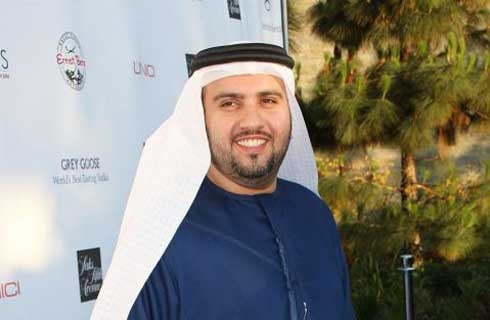Gulf ruler buys top club – then reveals his plan to spend, spend, spend...

The tiny Gulf state of Abu Dhabi launched an audacious raid on one of Britain's top football clubs yesterday in a move that will transform the shape of global football.
The £210m takeover of Manchester City threatens to dethrone their closest rivals Manchester United and establish City as the biggest team in the world. The club announced that it had signed a memo of understanding with the Abu Dhabi United Group (ADUG), a holding company set up by Middle East investors, backed by the country's royal family. The new regime's first move was an attempt to gazump United's £30m signing of Tottenham Hotspur's star striker Dimitar Berbatov with an offer of £34m. And they quickly followed that by lodging bids for Spain's highly rated forward David Villa and Stuttgart's Mario Gomez.
ADUG will spend the nextfew weeks examining the club's books before taking control, and will become the first Middle East investor to be in control of a Premier League team.
The Arab group is fronted by Sulaiman Al Fahim, a multi-billionaire nicknamed the "Donald Trump of Abu Dhabi," who has pledged to invest enough to break up the "Big Four" of Manchester United, Chelsea, Liverpool and Arsenal by next year.
It could herald a whole new era for transfer fees, as the investors' plans could dwarf even Roman Abramovich's outlay at Chelsea, estimated at more than £500m.
A Dubai group failed in an attempt to buy Liverpool two years ago. Dubai International Capital (DIC), held talks about a £450m takeover but lost to two US investors. It remains interested and, given the turmoil in Liverpool's boardroom, there is a serious chance they could yet buy into the Merseyside club. Middle Eastern influence in football has grown recently, with Manchester United travelling to Saudi Arabia last year and announcing a £10m marketing deal with Saudi Telecom. Emirates, one of the largest airlines in the regions, has invested heavily in the Premier League, sponsoring Chelsea before switching allegiance to Arsenal, whose new stadium carries the Dubai-based carrier's name.
It is the latest demonstration of the region's financial muscle. Investors from across the region, particularly state-owned sovereign wealth funds, have grown in strength off the back of the soaring oil prices, which hit record levels just shy of $150 a barrel this summer. It comes at a time when the credit crunch has wreaked havoc across Western economies causing many to look for outside investment.
Mr Al Fahim spoke of plans to support the Manchester City manager, Mark Hughes, "by bringing in the best football players in the world" and had fans dreaming of stars including Thierry Henry, David Villa and Ronaldo lining up at Eastlands. The world record transfer fee of £46m which took Zinedine Zidane to Real Madrid in 2001, now looks under severe threat.
After the Premiership, the next step will be Europe, Mr Sulaiman said. Yet City fans will be most interested in overhauling United, their bitter rivals, who have claimed the bragging rights in Manchester for the past 30 years.
Manchester United claim the most supporters worldwide and, according to accountancy group Deloitte, are second only to Real Madrid in terms of generating cash. This year was the first time that three clubs from one country made the top five of the revenue league table – the other two being Chelsea and Arsenal. Manchester City didn't even make the top 20.
It is the latest twist for a club that was lifted out of mid-table and on to the front pages just over a year ago when it was bought by Thailand's former prime minister Thaksin Shinawatra. Mr Thaksin, affectionately dubbed "Frank" by the City faithful, brought huge investments as well as some serious issues that troubled some at the Football Association. They were crystallised this year when Thailand issued a warrant for his arrest after he failed to show up in court to face corruption charges. He will become honorary chairman of City when the deal is completed, according to the new investors, but will be stripped of his power.
The Arab investors have targeted businesses that would have been off limits five years ago. Sovereign wealth funds have invested hugely in the largest financial institutions in the world, taking significant stakes in banks including Citigroup, Merrill Lynch and UBS.
In the UK, Qatar has spent about £1.8bn in becoming the largest investor in Barclays, while Dubai invested £880m in taking a stake in the London Stock Exchange, according to data from Thomson Reuters.
No brand is off limits, it seems. Although Qatar failed in a £10bn bid for Sainsbury's last year, the market hasn't ruled out a second attempt, and a Middle East-backed group bought the luxury car group Aston Martin for almost £500m last year. Arab investors have also built holdings in the property companies Minerva and British Land during the past few months.
Subscribe to Independent Premium to bookmark this article
Want to bookmark your favourite articles and stories to read or reference later? Start your Independent Premium subscription today.

Join our commenting forum
Join thought-provoking conversations, follow other Independent readers and see their replies